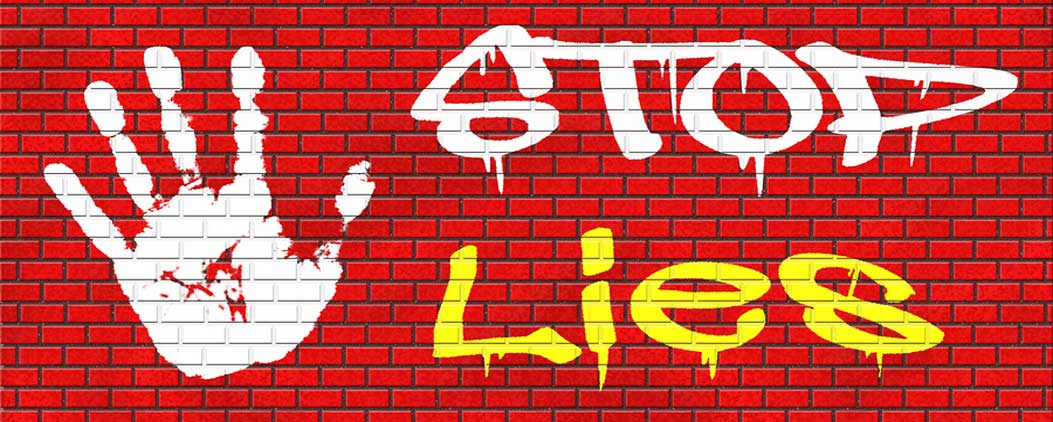We accept many falsehoods as truths when we operate under the conceptual umbrella of the Cynical Mindset. This is not surprising once we realize the faulty assumption upon which this mindset is based. The core belief of the Cynical Mindset is that each of us is an autonomous, independent individual existing as a separate entity in a world of separate things. Wars have been fought, civilizations have risen and fallen, nature has been assaulted, and much harm has been done in pursuit of the imagined glory of selves believing that they exist independently.
The problem is that this view of our existence is at odds with the reality of our situation. Nothing in nature is an island unto itself. Inter-dependence, not in-dependence is the way of the world, and, indeed, the cosmos. We cannot live outside of nature any more than our hearts can keep beating if separated from our bodies. Is it any wonder that, living according to a lie, we find ourselves and our planet on the verge of catastrophe?
David Brooks, author of The Road to Character and The Second Mountain, recently wrote an op-ed in The New York Times called “ Five Lies Our Culture Tells”. He states his premise here:
College mental health facilities are swamped, suicide rates are spiking, the president’s repulsive behaviour is tolerated or even celebrated by tens of millions of Americans. At the root of it all is the following problem: We’ve created a culture based on lies.
The specific lies Brooks speaks of are themselves wrapped in a subtle but pernicious underlying lie; the lie that independent existence is or can be real. The lies he mentions are symptoms of a blind belief in the existence of independence in a world were such a thing not only does not exist but is, in fact, impossible. In this article I will discuss each of the lies identified by Brooks as examples of the Cynical Mindset and attempt to show that the interdependent view of the Hopeful Mindset offers corrective measures that have the potential to mitigate the harm done by these lies.
The first cultural lie presented in Brooks’ article is “Career success is fulfilling”. In the terms of the values of the Cynical Mindset this is the importance that this mindset places on status as a way of supplying meaning and purpose for the independent individual. This kind of success is achieved through the manipulation, exploitation, and control of others who are treated as independent and separate things rather than inter-related and valued human beings. Status is validated in the construction of social hierarchies which divide us into varying levels of winners and losers. The French and American revolutions have shown that when such systems inevitably produce an excessively top-heavy distribution of wealth they become unsustainable and are destabilized. The Hopeful Mindset, with its recognition of interdependence, sees success, not in the achievement of personal status, but in the capacity to contribute to the wellbeing of the society in which one exists. An individual develops his or her capacities and is fulfilled by exercising them in contributing to the enrichment of the lives of the other members of society and to the health of the society as a whole.
The second cultural lie mentioned by Brooks is “I can make myself happy.” If you see yourself as an entirely independent person this lie seems self-evident but there is underneath it an accompanying sense of desperation. Extrapolating from this lie an individual might wonder, “If it is true that I can make myself happy and I am not happy then I am failing at making myself happy. And it this is so, maybe there is something wrong with me.” Lifetimes can be spent trying to identify whatever it is that might need fixing in order to be a happy person.
Once again this belief in the reality of the separate individual occurs unconsciously and automatically within the Cynical Mindset. Recognizing the interdependent nature of existence the Hopeful Mindset sees our place in the world differently. Happiness or fulfillment is understood to be dependent on acting in accordance with the values arising out of an interdependent mindset. When we are able to meet our needs through valuing such things as sustainability, respectful connection, humility, personal responsibility, and contribution we are more likely to feel fulfilled than when we are motivated by the self-centred, short-sighted values of the Cynical Mindset.
The next lie on Brooks’ list is “Life is an individual journey”. He explains it this way:
This lie encourages people to believe freedom is the absence of restraint. Be unattached. Stay on the move. Keep your options open. In reality, the people who live best tie themselves down. They don’t ask: What cool thing can I do next? They ask: What is my responsibility here? They respond to some problem or get called out of themselves by a deep love.
As Brooks points out here, people who see themselves as independent individuals seek freedom from obligations in an effort to be independent selves. But, as we have seen, this is an impossible pursuit. As interdependent beings we need others and they need us in order to thrive. Personal responsibility is a key value of the Hopeful Mindset because it recognizes our interdependent nature and and the interconnections between all living things. Not only is unrestrained freedom a pipe dream, it is a quest to be something that is disconnected from life.
Another cultural lie that Brooks discusses is “You have to find your own truth.” He puts it this way:
This is the privatization of meaning. It’s not up to the schools to teach a coherent set of moral values, or a society. Everybody chooses his or her own values. Come up with your own answers to life’s ultimate questions! You do you!
This view gives individuals the right to justify their actions using whatever version of truth they have come up with. As explained in The Hopeful Mindset, we are born with a default mindset, the Cynical Mindset, and this mindset comes with a default set of values that arise unconsciously out of its assumption of independently existing selves. This is the fundamental “truth” at the heart of the Cynical Mindset from which all other “truths” are derived. But of course an assumed truth, that is itself a falsehood, is no basis for justifying selfish behaviour. It can only lead to suffering when it runs up against the reality of our interdependent world. Truth is a description of reality. Interdependent existence is that description. It is the truth. Independence is fundamentally false. It is not found in reality.
Brooks’ fifth and final cultural lie is “Rich and successful people are worth more than poorer and less successful people.” Here again we see a judgement being made on the basis of the values of the Cynical Mindset. In assuming the existence of separate, independent selves there is a concomitant assumption of individual vulnerability to all that is other. The separate self is seen to be in competition with all other selves in a dog-eat-dog fight for limited resources. Accumulations of limited resources is thought to be a necessary strategy for personal survival. Indeed, success is equated with wealth. Wealth is the very measure of success when survival is seen to depend on acquiring and safeguarding more resources than others.
As Brooks points out, the concept of meritocracy is invoked to justify the “rich get richer while the poor get poorer” phenomenon we see happening all around the world. Meritocracy teaches that the wealthy deserve their wealth because they have earned it and that poor people could be wealthy if they would only work harder and/or smarter. But there is a fallacy underlying this belief. This is the fallacy of the level playing field. Meritocracy assumes equal opportunity for all in the land of the free. However, a quick reality check reveals no such thing. Does a poor teenager, living in poverty, with honest parents who can barely eke out a living really have the same chance of becoming a wealthy business executive as a privileged teenager living in Beverly Hills whose parents are willing to falsify his academic records in order for him to gain admittance to expensive and prodigious institutions? Meritocracy, where success is valued over the wellbeing of others, is indefensible and so is the economic inequality it attempts to rationalize.
The values of the Hopeful Mindset have the capacity to expose and disarm the harm done by belief in the fifth lie and making choices accordingly. With a deep understanding of the interdependent nature of all living beings, personal wealth accumulation at the expense of the wellbeing of others is not an option. Rather than defining success as the accumulation of personal wealth an interdependent view of life sees success in terms of the flourishing of the species rather than the individual or tribal group. Success occurs when initiatives are sustainable, individuals take responsibility for each other, and ambition is balanced with humility.
David Brooks sums up his article by saying:
No wonder it’s so hard to be a young adult today. No wonder our society is fragmenting. We’ve taken the lies of hyper-individualism and we’ve made them the unspoken assumptions that govern how we live.
The default values arising spontaneously from the Cynical Mindset’s assumption of independent selves is the cause of hyper-individualism and its lies. Adoption of the interdependent values of the Hopeful Mindset has the potential to remediate the cultural and environmental devastation caused by the fallacy of independent existence. However, unlike the automatic development of our default cynical values, hopeful values require conscious awareness to take root. Education and willingness to intentionally engage in learning the fundamentals of the interdependent view are required. Becoming hopeful and a part of the solution requires personal effort and commitment.
For more about The Hopeful Mindset visit hopefulmindset.com

